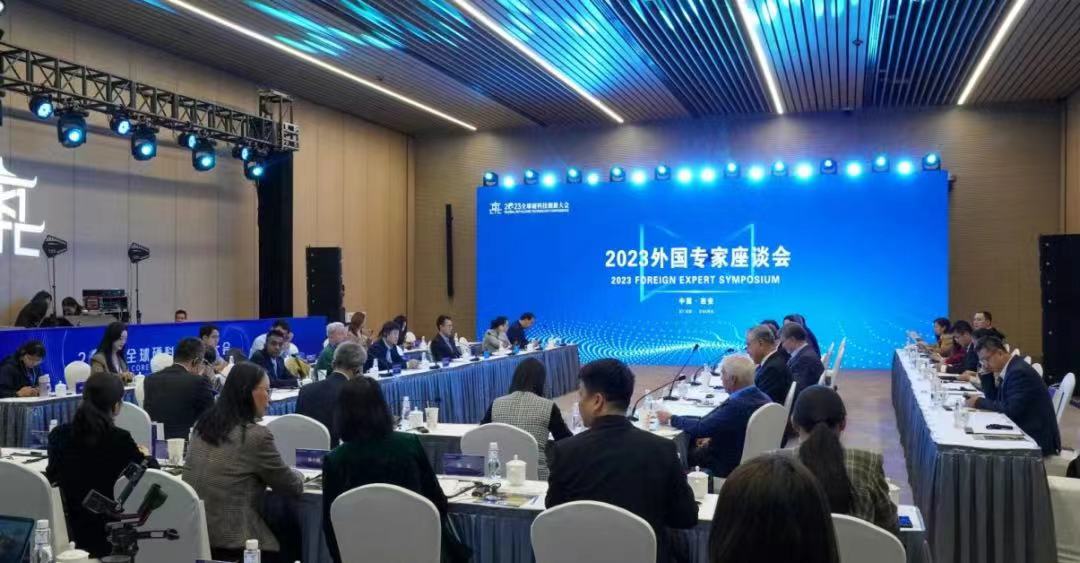'Xi'an Magnet' Effect on Globalization of Science
By LONG Yun

The conference site. (COURTESY PHOTO)
Xi'an in Shaanxi province, northwest China, once the capital of ancient China, has long been a hub of East-West cultural exchange and mutual learning. A symposium of foreign experts held in the city on November 3 explored ways to promote international sci-tech cooperation and increase openness.
Lou Wenxiao, deputy director of Xi'an Municipal Science and Technology Bureau, spoke about how Xi'an has become a magnet for foreign professionals. "The relevant departments of Xi'an have been tirelessly working to create an attractive and accommodating environment that allows overseas talent to unleash their potential with comprehensive service, enhancing what we like to call the 'Xi'an magnet' for overseas talents," Lou said.
Adrien Oger Peulvast, a French railway signal expert, said he has witnessed Xi'an's transformation over the years: "Its development is relentless in terms of its infrastructure, which has been well-implemented. Also, its development lies in its internationalization and the infusion of numerous international elements."
Peulvast's assessment of Xi'an's contribution to international technology cooperation was echoed by the other experts. "Science is international. There is no good science going on without international cooperation because this is not a local event but something where a lot of people work together," said German scientist Helmut Kettenmann, chair professor at the faculty of life and health sciences, Shenzhen Institute of Advanced Technology in south China. "It is crucial for people from different countries to engage in dialogue, and provide feedback," Kettenmann added.
The experts also recognized China's development as one of the significant global powers. Canadian scientist Abdul Ghani Razaqpur who teaches at Nankai University in Tianjin city neighboring Beijing, pointed out the need for countries with different levels of development to explore common ground for collaboration.
China, he noted, has shown a commitment to address climate change through policies and investments in new energy sources and battery technology. China's commitment to carbon reduction and advanced technologies positions it as a crucial partner in achieving global climate goals, making the dual targets of carbon peaking and carbon neutrality achievable.
Rasha Khalil, a Syrian scholar with the Sichuan International Studies University, told Science and Technology Daily that China's role in global affairs, symbolized by initiatives like the Belt and Road, has transformed the world and enriched the international community.
"I've witnessed the passion and dedication that China brings to the global stage, fostering economic, diplomatic and scientific unity," Khalil said.
Leonid Chornogor, a Ukrainian scientist with Qingdao University in north China, lauded the development of cutting-edge research and the integration of advanced fundamental research with applied technologies in China. These elements, he said, have laid the groundwork for China to become a global center of sci-tech innovation in the future.
As an important innovation hub in western China, Xi'an has intensified its endeavors to promote global scientific and technological exchanges. According to Lou, it has established 154 international sci-tech cooperative bases and set up six overseas sci-tech working stations in countries like Singapore and Germany.
Xi'an will become a fertile ground for international cooperation and exchanges because it possesses vast resources and potential, Peulvast added.






